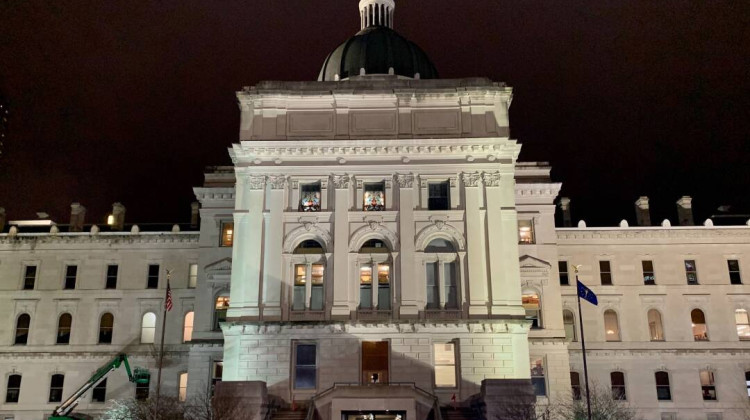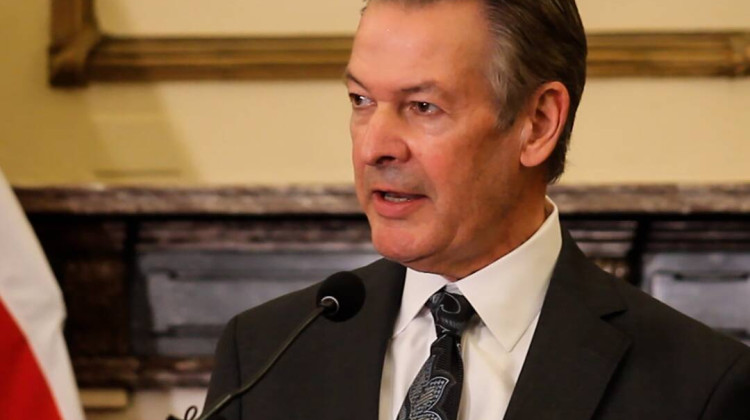A northwest Indiana utility plans to remove toxic coal ash from five of its ponds at its Michigan City coal plant. NIPSCO plans to excavate the waste and put it in a lined landfill at its other coal plant, R.M. Schahfer Generating Station in Wheatfield.
Coal ash contains toxic heavy metals like arsenic. Exposure to it can cause cancer, damage your nervous system, and cause other health issues.
Though residents and environmentalists are glad NIPSCO is removing the coal ash, they’re skeptical about whether the utility will clean up the site thoroughly and safely. NIPSCO is responsible for polluting drinking water and soil with coal ash in the town of Pines, just west of Michigan City.
“Damage in Pines has not yet been remedied — everyone is not on clean water. And when coal ash is allowed to escape into the environment, it’s hard to get back," says Lisa Evans, senior counsel for the group Earthjustice.
Evans worries some coal ash could fly out of the trucks as it's being transported to Wheatfield, leading to more pollution. NIPSCO says it plans to control coal ash dust with tarps on the trucks and possibly tracking them through GPS.
Officials with NIPSCO say, with few exceptions, all groundwater tested at the site met drinking water standards — though sediment was not tested.
Christina Zacny now lives in Michigan City, but used to live in Wheatfield where she still has family. She says it's concerning that this is her first time hearing about NIPSCO's plans to ship the coal ash to the Wheatfield and wonders if residents there have been contacted.
Maureen Turman is the director of environmental policy and sustainability at NiSource, NIPSCO’s parent company.
“If there was something that we were doing as a part of this plan that we felt was having an impact on the community, we would definitely make the adjustments,” she says.
Contact Rebecca at rthiele@iu.edu or follow her on Twitter at @beckythiele.
Indiana Environmental reporting is supported by the Environmental Resilience Institute, an Indiana University Grand Challenge project developing Indiana-specific projections and informed responses to problems of environmental change.
 DONATE
DONATE










 Support WFYI. We can't do it without you.
Support WFYI. We can't do it without you.